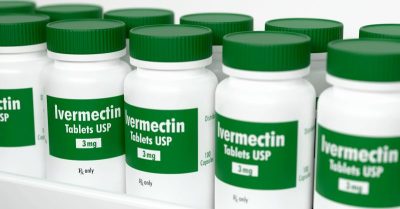Merck’s New COVID Drug Is Making News — How Does It Compare to Ivermectin?

All Global Research articles can be read in 51 languages by activating the “Translate Website” drop down menu on the top banner of our home page (Desktop version).
Visit and follow us on Instagram at @crg_globalresearch.
***
In his latest video, John Campbell, Ph.D., compared ivermectin, whose use as a COVID treatment has been widely criticized by mainstream media, with Merck’s new COVID drug, Molnupiravir, which is garnering positive media coverage.
In his latest video, John Campbell, Ph.D., compared ivermectin, whose use as a COVID treatment has been widely criticized by mainstream media, with Merck’s new COVID drug, Molnupiravir, which has been the subject of glowing media attention.
Campbell, a UK-based nurse teacher, cited several studies as he compared the two treatments on the basis of effectiveness, safety and cost. He first turned to a paper in the Austin Journal of Pharmacology and Therapeutics, “Drugs Shown to Inhibit SARS-Cov-2 in COVID-19 Disease: Comparative Basic and Clinical Pharmacology of Molnupiravir and Ivermectin.”
The peer-reviewed paper refers to ivermectin as the most studied “repurposed” medication globally, and notes that it is approved by the U.S. Food and Drug Administration and “classified by the World Health Organization (WHO) as an ‘essential’ broad spectrum antiparasitic, antibiotic, and has demonstrated broad antiviral activity against RNA viruses, including HIV, Zika, MERS and coronavirus.”
“And of course, ivermectin also won the Nobel Prize in 2015,” Campbell said.
According to the paper, Campbell said, Molnupiravir — though still going through trials and safety testing — is believed to “work against seasonal and pandemic flu, MERS, coronavirus and SARS-CoV-2.” The paper’s author noted that Molnupiravir does not inhibit inflammation, whereas ivermectin does.
How do the two drugs compare on cost? Ivermectin is exponentially cheaper than Merck’s new Molnupiraravir.
The cost of a complete five-day course of Molnupiravir is $700 — or $70 per pill. That amounts to a 4,000% markup over what it costs Merck to make the drug.
Citing 2013 prices provided by the WHO, Campbell said a five-day course of ivermectin — 10 3mg pills — costs $0.53. (However, at today’s U.S. prices, 10 3mg pills cost about $39).
On effectiveness, Molnupiravir is lacking data. The only publicly available clinical data on Molnupiravir comes from a Merck press statement claiming the new drug is 50% effective against hospitalizations and deaths, when used as an early treatment.
For ivermectin, using publicly available data, Campbell referred to one peer-reviewed study that pegs ivermectin’s effectiveness in early treatment at 62%, and an ongoing meta-analysis which shows ivermectin is 66% effective in early treatment and 86% effective as a prophylactic.
Using VigiBase, a WHO database on pharmaceutical safety data, Campbell showed that out of 3.7 billion doses given of ivermectin there have been only 5,693 reports of adverse events — far fewer, according to Campbell, than the number of adverse event reports associated with amoxicillin and ibuprofen, both widely used and considered safe.
Comparable safety information for Merck’s Molnupiravir is not yet available, as trials and studies are still ongoing. But Campbell did raise concern about Molnupiravir’s mutagenic properties. He cited the Austin Journal of Pharmacology and Therapeutics paper which states, “there is some concern about the safety of [Molnupiravir’s] NHC-nucleoside triphosphate, which is mutagenic to mammalian cells.”
According to Campbell, Merck denies this is a problem. But the paper suggests, at the very least,” it needs looking into,” Campbell said.
Watch the video here:
*
Note to readers: Please click the share buttons above or below. Follow us on Instagram, @crg_globalresearch. Forward this article to your email lists. Crosspost on your blog site, internet forums. etc.
Jeremy Loffredo is a reporter for The Defender.
Featured image is from CHD

